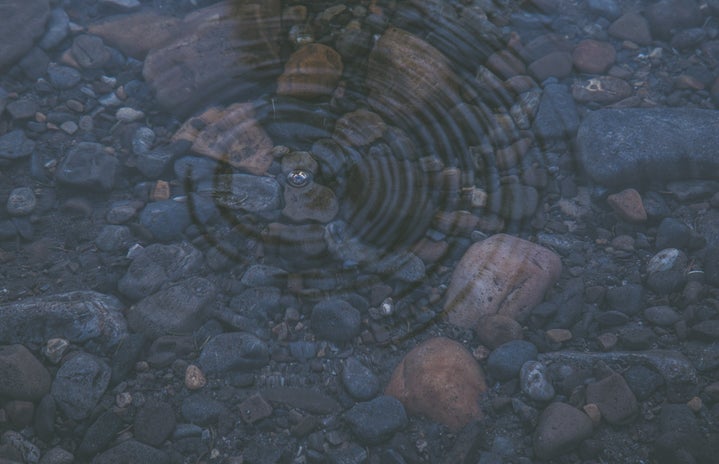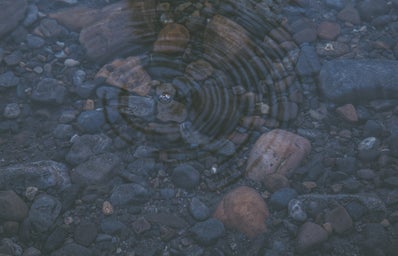I have an anxiety disorder. It started around the beginning of my freshman year of high school, but it wasn’t until the summer before college that I identified it–that I realized what I was feeling was not normal. It was not all in my head. I’ve struggled with depression on and off throughout that time and since then. I had my first panic attack my second year of college. It consumed me: my mind, my body. It can be difficult to talk about, which also makes it harder to cope.
Mental health comes with a stigma, slowly-dissolving but still very present in today’s culture. We need to be having these conversations; we need to be open and accepting; we need to replace the barriers against such discussions with love and empathy. I cannot speak for others with similar issues just as I can’t speak for those with entirely different issues, but I can share my story and individual perspective. Anyone can add their experience to the mix in order to enhance understanding. Opening a dialogue and creating a space for conversation are some of the first steps to overcoming stigma and accepting others and ourselves.
(Photo courtesy of Xavier Sotomayor)
Often, people want to talk, to ask, to comfort. Worries of not knowing what to say or how to react are common. I have become more comfortable being honest with people and letting them know: I don’t know how to respond to that or what you need most right now, so could you please tell me what I can do for you? How can I help? I believe that listening and validating the other person’s experience are some of the most important actions you can take to be there for someone. Validate, and then work through solutions or possible future routes.
Everyone’s experience is different. When I have a panic attack, my throat constricts. My breath comes shallow, faster. I can’t think about anything else; it’s overwhelming, all-consuming. I feel exposed and tense and jittery, my nerves vibrating uncomfortably, trying to crawl out of my throat and hands.
Anxiety is not a stagnant condition, but rather a constantly oscillating system, expanding and constricting, getting better and worse. It holds me back at times from attending events, or from engaging with the people around me. I am sometimes lonely when I am not alone, though being alone does not necessarily mean I am lonely.
(Photo courtesy of Noah Silliman)
I cope in different ways.
Often my anxiety stems from anticipation. I imagine coming events and encounters and build them up in my mind. I unravel and create more and more distance between myself and whatever it is I’m supposed to be doing. I constantly have to remind myself of this tendency. I tell myself that once I start, it’ll be fine. Easy-peasy. So just go. Start.
I practice mindfulness. Anyone can do this, anytime, anywhere. Mindfulness, to me, is not just the act of mediation, but the lifestyle and perception of life that accompany it. Breathe.
I am optimistic and try to reframe situations. I seek out silver linings and solutions. I ask the what-if questions: what if I don’t do this? When else will I have the chance? Who else will do it? I believe in things happening for a reason. I try to find the good in the worst situations.
(Photo courtesy of Brooke Cagle)
Keeping my hands busy is important. I pick my nails when I’m nervous or stressed, a bad habit that refuses to die. I just like to have some small distraction that doesn’t detract from or consciously interrupt my tasks and interactions. I fiddle with pens between two fingers, doodle, tap fingertips against my desk.
It’s incredibly helpful to identify one’s own methods of dealing with their own manifestation of anxiety and related disorders. Having coping mechanisms at hand, and figuring out how to help yourself, is crucial.
I’m bad at opening up to people, at initiating conversation, but again, having these kinds of conversations are essential. Normalizing mental health, like physical health, is essential. I acknowledge that I need to continue being open and accept help from others. I, in turn, can offer my assistance and experience.
Check in on friends, on strangers, on teachers, on family. We can’t always know what other people are thinking, regardless of how they seem on the outside. Offer a kind gesture because you never know who really needs it, or who you will help get through a particularly tough day. At the very least you can brighten someone’s day; people appreciate small, friendly, genuine actions. Hold the door, extend a compliment, write a thank you note. Ask how people are doing, but really mean it. We need to take care of each other, and ourselves.(Photo courtesy of Eye for Ebony)
(Thumbnail photo courtesy of Kaylah Otto)

